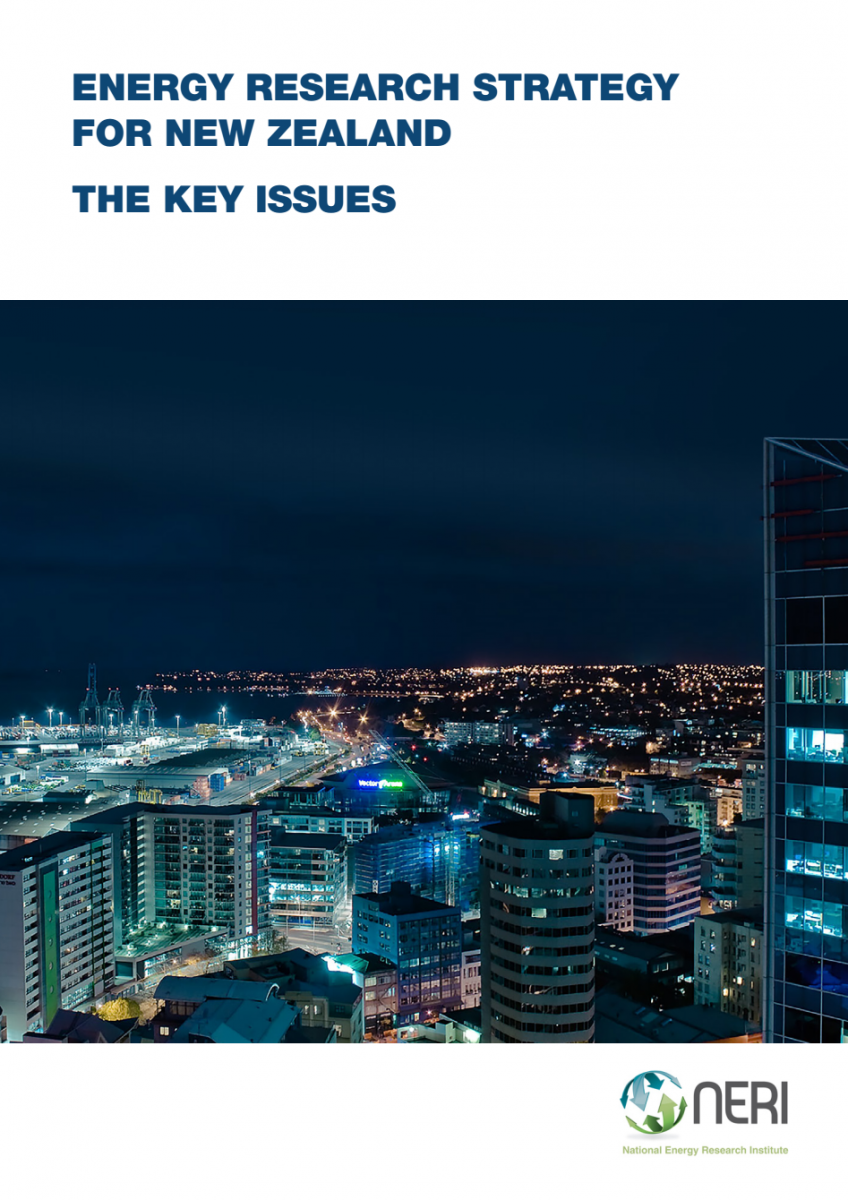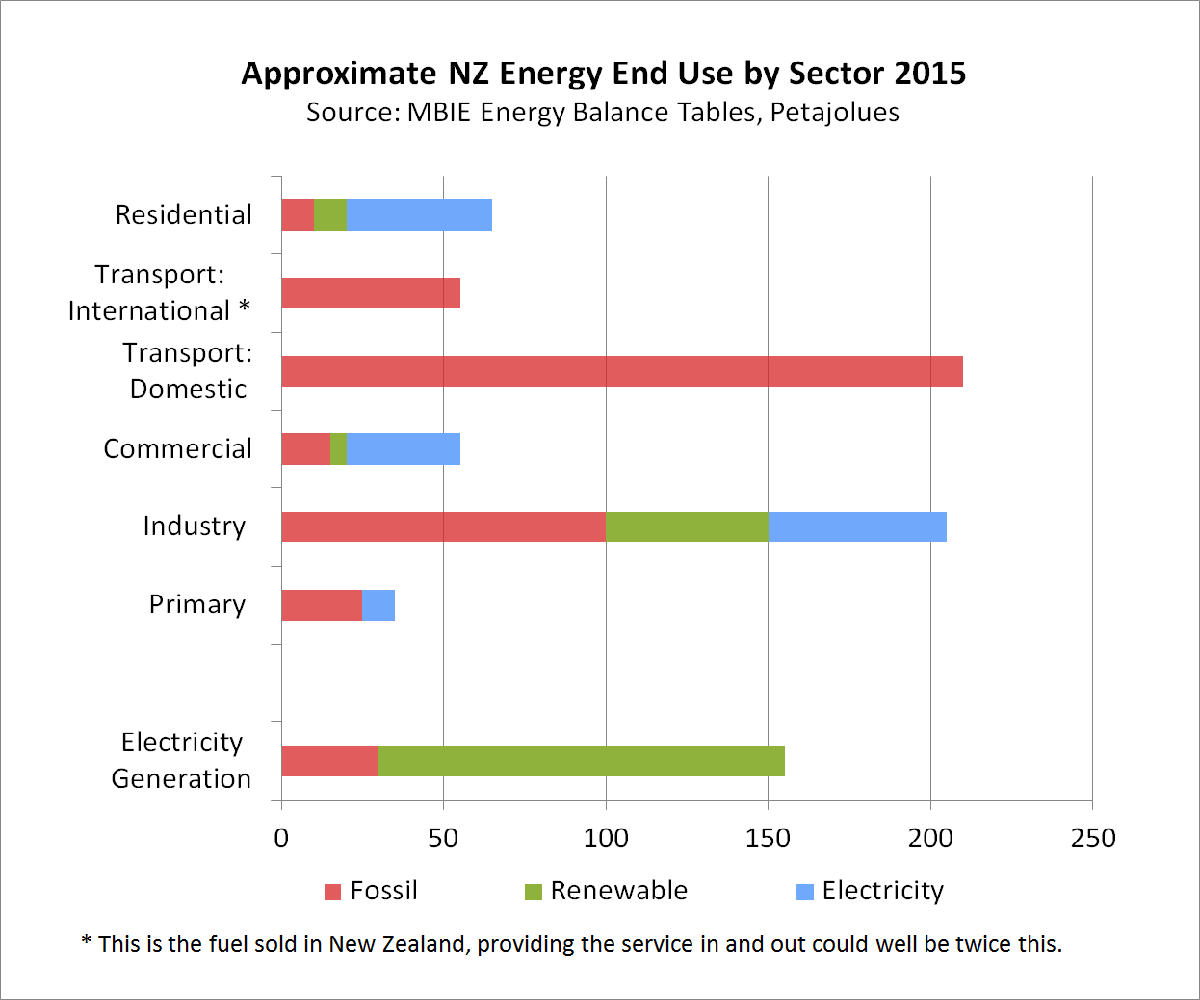NZ's Energy Research Strategy 2017
 The general themes from the New Zealand government's Energy Strategy and other documents define the priority issues for the energy sector. New Zealand seeks economic growth and social wellbeing from energy, using supplies that are secure, resilient and meet environmental objectives and obligations, while ensuring everyone’s basic energy needs are met.
The general themes from the New Zealand government's Energy Strategy and other documents define the priority issues for the energy sector. New Zealand seeks economic growth and social wellbeing from energy, using supplies that are secure, resilient and meet environmental objectives and obligations, while ensuring everyone’s basic energy needs are met.
In the main achieving this will not require in-depth research and will use overseas energy technologies and practices. New Zealand's energy research may need to help, but it won’t be the main driver unless it is in an area where we ourselves have international standing.
On the other hand New Zealand’s energy research will be needed to address the challenges that are unique to New Zealand and beyond business-as-usual. Identifying these is the starting point for any strategy for investing in New Zealand’s medium-term applied energy research.
NERI has been doing just that, talking to representatives from business, the public sector and researchers. This has culminated in the publication of Energy Research Strategy for NZ: The key issues [4.4MB].
The major issues for energy research in New Zealand arise from the nature of our energy use, and the major trends that impact upon it.
New Zealand's largest end users of energy are the transport and industrial sectors. The overall picture is as follows:

The main global trends impacting on the New Zealand energy sector are:
- concerns over emissions, particularly greenhouse gasses;
- an explosion in energy technologies driven by material science, ICT and biotechnology particularly;
- decentralised energy supply giving much greater choice and ultimately control to users;
- uncertainty in global energy supply, demand and pricing.
The advent of electric vehicles (EVs), coupled with our high renewable electricity generation means that EVs will be the lowest cost option for New Zealand's light duty cycle fleet even at very low GHG emissions charges. Over the next 20 years New Zealand will see a very large shift from fossil fuel transport to electricity. But this shift to EVs along with other new storage and distributed technologies will place significant demands upon our electricity system. So New Zealand faces the challenge of ensuring it maintains a low cost, clean, secure electricity supply
The emphasis on clean electricity is just part of a the wider concern about emissions from fuels. We have international obligations to meet in this regard, but the risks extend beyond domestic emissions. They extend to perceptions of our major export earners, particularly those with high exposure to consumers (e.g. food and tourism). This is a particularly issue for New Zealand because of the distance to our markets. So we face the challenge of developing cleaner longer distance transport, both domestic and international. EVs will not be able to service this need. Alternatives to travel will need to be explored.
Transport aside New Zealand's industrial energy use is driven by a small number of significant users. Of these our aluminum, steel and methanol producers require ongoing research both to improve efficiency and to reduce emissions. However the companies involved are international and source their R&D globally. On the other hand given the importance and diversity of food production in New Zealand there is a need to be considering the potential risks and opportunities that arise from energy use in food.
Taken together all of these developments paint a picture of a future where there is a significant shift away from fossil fuels along with changes in the mix of energy products New Zealand uses. This will directly impact upon our our coal, gas and oil industries including our exports, but again these will be problems we share internationally. However we do have the challenge of finding other uses for our coal, oil and gas reserves.
The residential sector is an important direct energy user. Within that keeping warm and dry is major concern particularly for the less well off. This is made more difficult because most are renters and New Zealand's historic home construction standards have not been strong on energy performance. Changes in the electricity system could also impact adversely on them. Ensuring warm and dry homes are affordable remains a challenge.
Finally there is an on-going need to monitor and asses the energy sector's performance, not least because of the uncertainty in what we face.
These then are the key broad issues our energy research needs to address. We welcome feedback on the issues raised here and in the Strategy.
